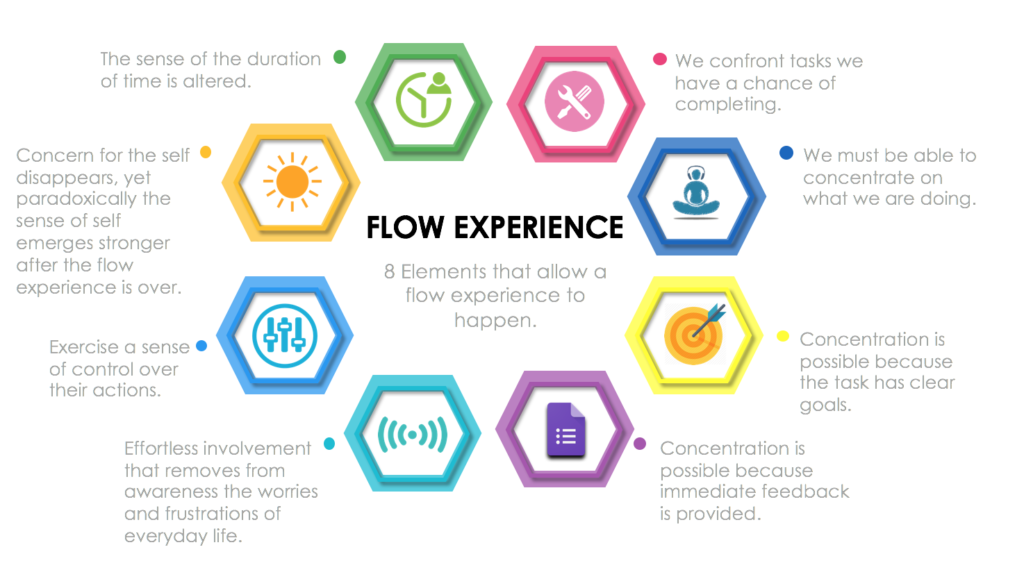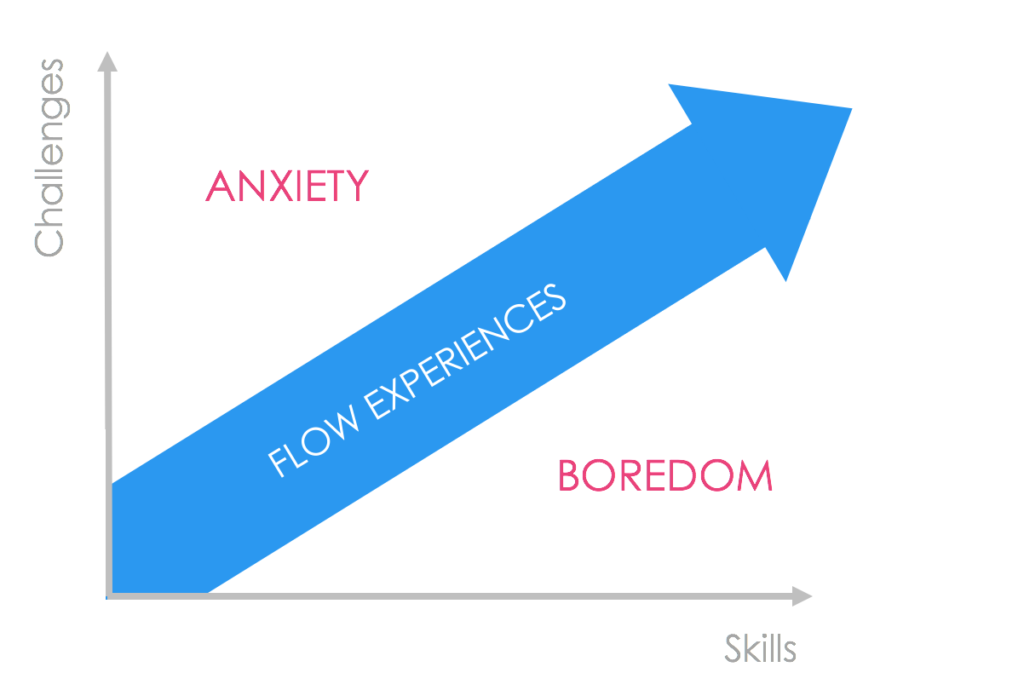Overview
The following is a personal reflection based on the book Flow: The Psychology of Optimal Experience (Csikszentmihalyi, Mihaly, 2008). Such book introduces the concept of “flow”, a state probably experienced by everyone on the Earth at least once, which is correlated with happiness.
Flow is the state in which people are so involved in an activity that nothing else seems to matter.
Football is one of those activities that facilitate the “flow experience” due to its characteristics inherent to the activity itself. That´s probably why it is so loved. But, is the “flow experience” always present? What elements are present when a “flow experience” happens? Can anything be done to experience it more often? Can anything be learnt and be applied to training sessions? Below is the first post of probably many.
What is a Flow Experience
According to Csikszentmihalyi, the concept of “flow” is a “state in which people are so involved in an activity that nothing else seems to matter“. “Flow” is also “the way people describe their state of mind when consciousness is harmoniously ordered”.
Going through these states of flow makes us become a more complex self. A richer one. And probably (but not necessarily) a better one.
As the author points out, “the flow experience, like everything else, is not “good” in an absolute sense. It is good only in that it has the potential to make life more rich, intense, and meaningful; it is good because it increases the strength and complexity of the self“.
8 Elements of Flow
Csikszentmihalyi suggests there are 8 “pre-requisites” for “Flow Experiences” to arise. “The combination of all these elements causes a sense of deep enjoyment that is so rewarding people feel that expending a great deal of energy is worthwhile simply to be able to feel it“.
Click on each item for details.
The autotelic quality of flow-experiences.
First, the experience usually occurs when we confront tasks we have a chance of completing. It produces what Mihaly calls an “Immediate return on Investment (IROI).
High level of concentration.
Second, we must be able to concentrate on what we are doing. The field must be limited.
Clear Goals
Third, concentration is possible because the task undertaken has clear goals.
Immediate Feedback
Fourth, concentration is possible because the task provides immediate feedback.
Efortlessness
Fifth, one acts with a deep but effortless involvement that removes from awareness the worries and frustrations of everyday life.
Balance between Skills and Challenges
Sixth, enjoyable experiences allow people to exercise a sense of control over their actions. Too many challenges causes frustration. Few challenges causes boredom.
The melting together of action and consciousness.
Seventh, concern for the self disappears, yet paradoxically the sense of self emerges stronger after the flow experience is over.
Time is altered
Finally, the sense of the duration of time is altered; hours pass by in minutes, and minutes can stretch out to seem like hours.
Flow Experiences in Football
Football has the potential to facilitate reaching these states of flow, especially during official games. But how can we ensure they can be achieved, especially on training sessions? There´s no way we can guarantee that, especially considering that in the end it´s each one who must have the willingness to immerse their consciousness onto the activity.
However, every time we design and execute training sessions, we can keep a couple of things in mind:
Click on each item for details.
Choose the right balance between challenges and skills.
Too many challenges cause anxiety and frustration. Having pressure by parents is not free: it causes frustration. Indeed, all the “extrinsic goals” can come at the expense of hurting players learning development pathway. “If extrinsic goals—such as beating the opponent, wanting to impress an audience, or obtaining a big professional contract—are what one is concerned about, then competition is likely to become a distraction, rather than an incentive to focus consciousness on what is happening”.
Make sure your players understand what the GOALS are.
Here comes the WHY we do things. With that in mind, it gets much easier for them to see themselves whether they are achieving what they want to achieve and to reach the level of concentration needed to reach the state of flow.
Make sure they are receiving the appropriate feedback.
Sometimes, feedback doesn´t need to come from the Coach. An exercise well designed will do part of the job. For them, understanding clearly what the goals are will help them eventually understand not only whether they are getting closer to it, but also why they are or why they are not. Just make sure that is happening.
Like my drawings? Download the Football UI Kit to create your own analyses and sessions.
Ex Google | Real Madrid Youth Academy (Tactical Analyst & Administration of Academy) | Master in Talent Development in Football (Escuela de Real Madrid)| Certified Coach (Argentina & Federación Catalana de Fútbol) | Follow me on Twitter & LinkedIn (@juliangenoud). Escribime a juliangenoud-at-gmail.com


